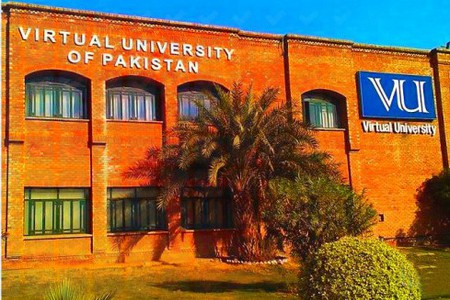vu mgt111 Mid Term Subjective Solved Past Paper No.1
vu mgt111 Introduction to Public Administration Solved Past Papers

This subjective solved past paper is related to book/course code vu mgt111 Introduction to Public Administration which belongs to vu organization. We have 4 past papers available related to the book/course Introduction to Public Administration. This past paper has a total of 10 subjective questions belongs to topic Mid Term to get prepared. NVAEducation wants its users to help them learn in an easy way. For that purpose, you are free to get prepared for exams by learning subjective questions online on NVAEducatio.
NVAEducation also facilitates users to download these solved past papers with an affordable prices. However, users are not enforced to pay for money, rather they can use credits to buy such stuff on NVAEducation. Users can earn credits for doing some little tasks and then you will be able to use that credits to buy solved past papers on NVAEducation.
August 16, 1946
The ML's timely coercive political strategy brought the Congress on table with the British. The Interim Government was formed under Nehru onSeptember 2, 1946 and the ML stayed away. They joined it on October 25, 1946:
- Liaquat Ali Khan
- Sardar Abdur-Rab Nishtar
- Raja Gazanfar Ali
- Chundrigar
- J. N. Mandal
There were a number of problems of smooth functioning of the Interim Government due to the Muslim-Hindu differences.
Importance of Education:
Education is a key to development for individual, society and state. It shapes natural qualities and talents of the individuals. It has positive relevance to family and society. It also confers citizens' confidence to deal with environment, a sense of purpose. Education provides a goal orientation and is helpful to others by educating them. Education provides entitlement to job and professions. It gives effective tanning to the citizens about their rights and duties. It plays a more constructive role in character building of the person and in turn society as a whole. Education should be integrated to nation building and should be able to transmit the primary values. Education should be responsible for the formation of attitude.
It should transmit socialization among individuals. Education system is designed according to the ideology of the state and its identity. Education is the indicator of socio-economic development. For the real progress proper educational facilities should be provided. Literacy rate should be enhanced. Trained and qualified human power can make a nation success. Only such educated people can better be equipped to deal with changing situations and challenges of the time. Education provides better understanding of international environment that affects all of us. Islam asks Muslims to get education. Other religions also value education. Resource allocation for education is far from satisfactory. It is much less than what a large number of countries spend on education, especially those having developed after World War II. Most of these allocations go to salaries and administration. Fewer amounts are given for infrastructure, facilities of research and development.
Low Literacy
In Pakistan literacy rate is 46 per cent. While meaningful literacy is far less. Female literacy is lower. In rural areas literacy is much low.
It was a small state with access to sea having about 7 lakh population and 3377 mile area. The ruler was Muslim while the majority of its population was Hindu. The ruler decided to accede to Pakistan and Pakistanalso accepted the accession. In November 1947, the Indian troops entered the state and took its control. The referendum favoured India.
Features of the Constitution
Parliamentary System
It was a parliamentary constitution having powerful Prime Minister (PM) as head of government with a very weak President. President must act on the advice of PM. All his orders were to be countersigned by PM. Prime Minister to be elected by the NA.
PM exercised all executive authority. PM was answerable to the NA. In 1985, powers of the President were increased. He enjoyed some discretion in appointments of PM. He had power to dissolve the NA. He had the powers of appointment of caretaker PM. He gives his assent to bills passed by the parliament or returns these.
President:
Must be at least 45 years of age, Muslim, qualified to become member of the NA. He is elected by the Parliament and the Provincial Assemblies for 5 years. 3.3. Parliament with two houses: Upper House called Senate. In this house equal representation is given to Provinces. Seats are reserved for the tribal areas, women and technocrats. Its original strength net was 63, which was later raised to 87 and then 100. Senate is elected indirectly. It's a permanent House as half of its members are elected after three years. Lower House: National Assembly is elected on population basis. Its Original strength was 210 but now it is 342. NA is elected for five years. Senate: Indirect elections National Assembly: Direct elections Voting age for the franchise is lowered from 21 to 18. Parliament under 1973 constitution is a powerful legislative body. It enjoys all



